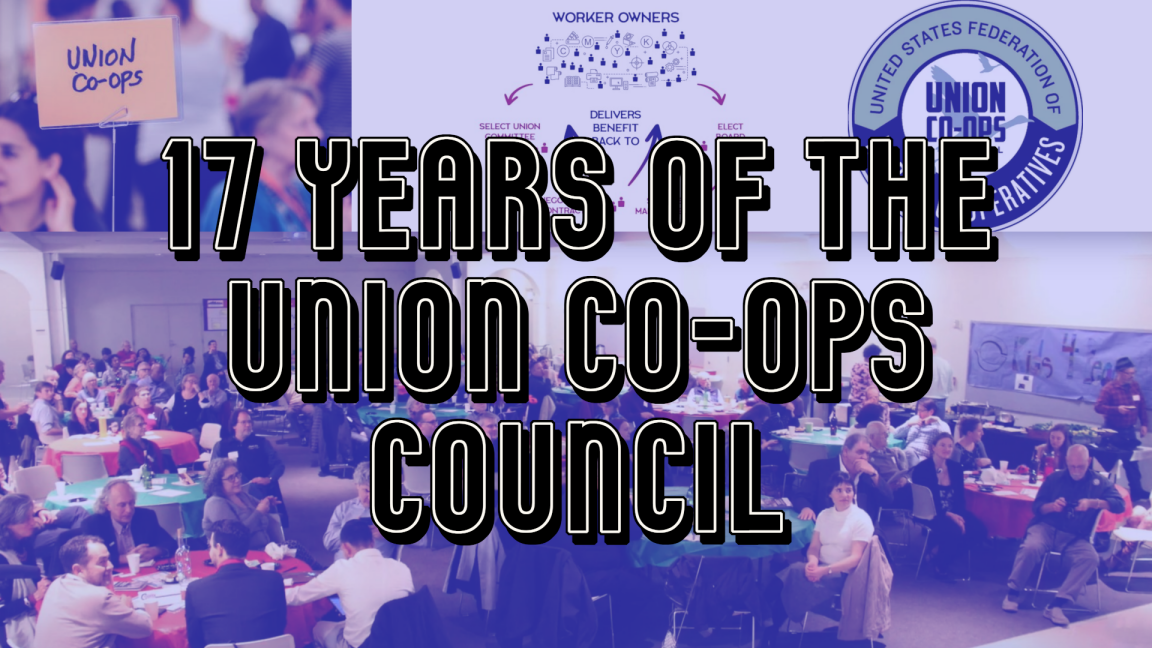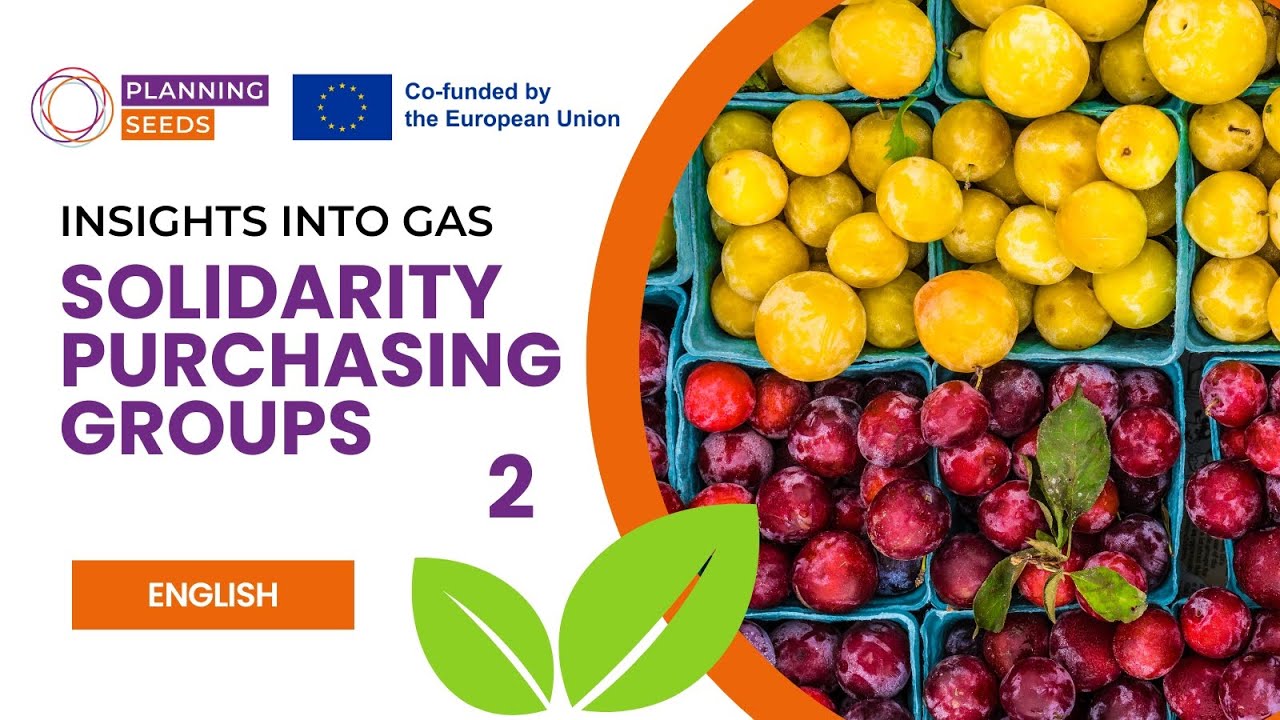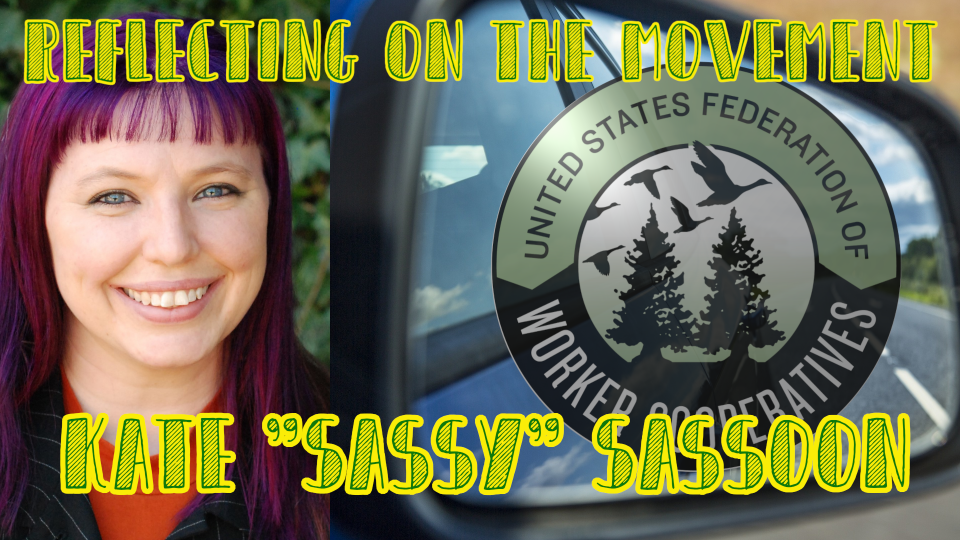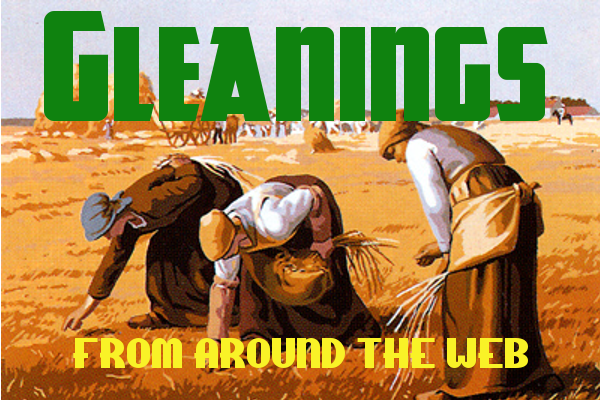This week, Dylan Hatch writes about the 17 year history of the Union Co-ops Council, the USFWC's oldest member council. Since it's inception in 2007, the Council has worked to build bridges between the union and worker co-op movements through education, research, consulting, and networking.
Then, Vincenzo Vizioli tells the story of how the Italian organic movement of the 1980s gave birth to Solidarity Purchasing Groups (GAS) that have been become an integral part of local food systems that facilitate access to quality organic products, and promote a fair and solidarity-based economy.
Kate "Sassy" Sassoon shares her thoughts and reflections on the last two decades of development in the worker cooperative movement.
The Union Co-ops Council: Seventeen Years of Forging Worker Alliances
by Dylan Hatch
As the US Federation of Worker Cooperatives (USFWC) celebrates its twentieth anniversary in 2024, July marks seventeen years since the founding of its oldest member council – the Union Co-ops Council. Established to bridge worker cooperatives and organized labor, the Council has become a crucial player in both movements, fueled by the resurgence of unions and worker co-ops throughout the beginning of the 21st century. Just as the USFWC concludes its first twenty years with renewed energy, ambition, and capacity, the Union Co-op Council also reflects on its successes and sets a clear path forward to advance worker ownership and power.
Insights into GAS: Solidarity Purchasing Groups
by Tamat
Discover what it means to be part of a Solidarity Purchase Group (GAS) through the interview with Vincenzo Vizioli, president of AIAB Umbria...From the initial challenges of introducing organic food into school canteens, to the growth of organic farms in Umbria, Vizioli illustrates the crucial role of associations in supporting producers and raising consumer awareness.
Social Innovation In Money Pooling Systems For Immigrant Women
Diverse Economy Conversations for Youth — The perspective of Juliet ‘Kego is not one to miss. Her life-long and cross-cultural experience with ROSCAs, or money pooling systems, have allowed her to craft a unique take on how its users can unite regardless of their racial or cultural affiliation. Without forgetting to highlight why the Banker Ladies spearheading this initiative are Black, she pays tribute to the multicultural integration necessary for ROSCAs to flourish in Canada no less. In this pioneering conversation, Juliet ‘Kego and your host Serena Bahadur consider the role of multicultural integration in the social innovation of our money pooling systems. As these systems inevitably take hold in the Canadian cooperative sector, Serena and Juliet reimagine a financial economy where ROSCAs, immigrant women, women of color, and youth take center stage...
Students embrace co-operative housing as a solution to rental and cost-of-living crisis
ABC News (Australia)(YouTube) — A group of 29 Canberra students are extolling the benefits of living together in a rent-controlled, cooperative home as an alternative to student accommodation and the private rental market. There are thought to be a few hundred cooperatives across Australia, where each member is given an equal say on how they're governed, and rent can be indexed to income...
Afripride Women Cooperative
Co-operatives First — Co-operatives First is proud to have helped the Afripride Women Cooperative (AWC) to get up and running! This group of Afro-Canadian women, driven by a passion for the economic empowerment of other women like themselves, formed the co-op to pool their resources and invest in projects that benefit their families and communities. AWC’s mission is to promote the socio-economic self-empowerment of Afro-Canadian women, an equity-deserving group, through culturally aligned economic alternatives; specifically Rotating Savings Credit Associations (ROSCAs). This model is well known and widely practiced among many immigrant communities, where women pool their resources and invest together in various projects that would have otherwise been unaffordable to individuals...
Radical board games: a history
Red Pepper — The early 1900s Women’s Social and Political Union (WSPU) used games to raise funds, teach strategy and build awareness. Suffragetto pitched suffragettes against police – the former trying to storm the House of Commons, the latter to infiltrate the WSPU. Wrong moves put players in prison or hospital. The card game Panko, and Pank-a-Squith – named for Emmeline Pankhurst and prime minister Herbert Asquith – similarly promoted votes for women. Feminist activist-artists have also toyed with board games. Stella Dadzie made Womanopoly ‘for a society where the cards are stacked against women’...
New on our YouTube Channel
LimeLeaf Worker Collective - an interview with John Luther
Like what you find on GEO?
Make a Donation Today!
Your tax-deductible contribution ensures that GEO can continue to provide independent grassroots content about the cooperative and solidarity economy movements.
Got something to say?
Let us know. Send your comments, suggestions, rants and article submissions to editors@geo.coop.
Follow us on Social Media
Mastodon: social.coop/@GEO_Collective
FB: facebook.com/GrassrootsEconomicOrganizing/
Twitter: twitter.com/@GEO_Collective
Our mailing address is:
Grassroots Economic Organizing
P.O. Box 115
Riverdale MD 20738-0115





